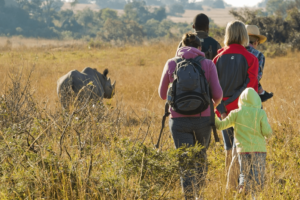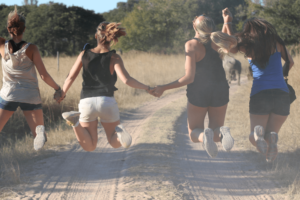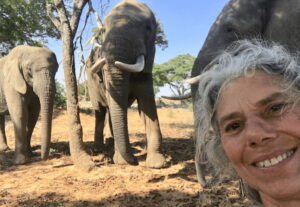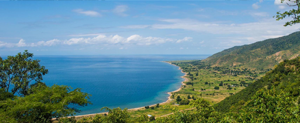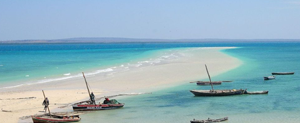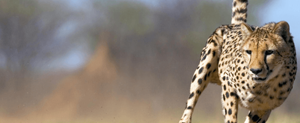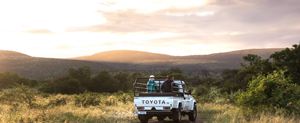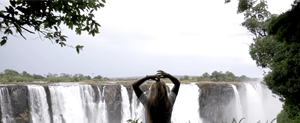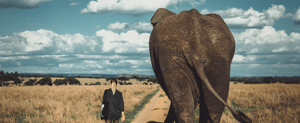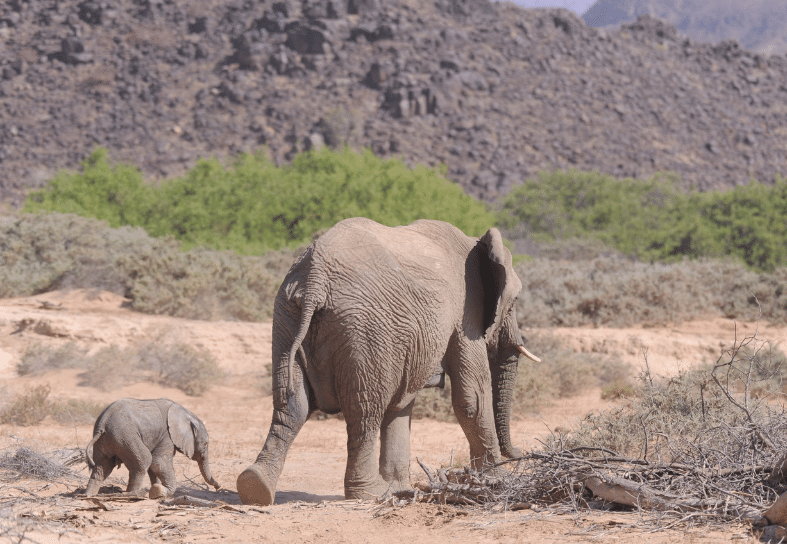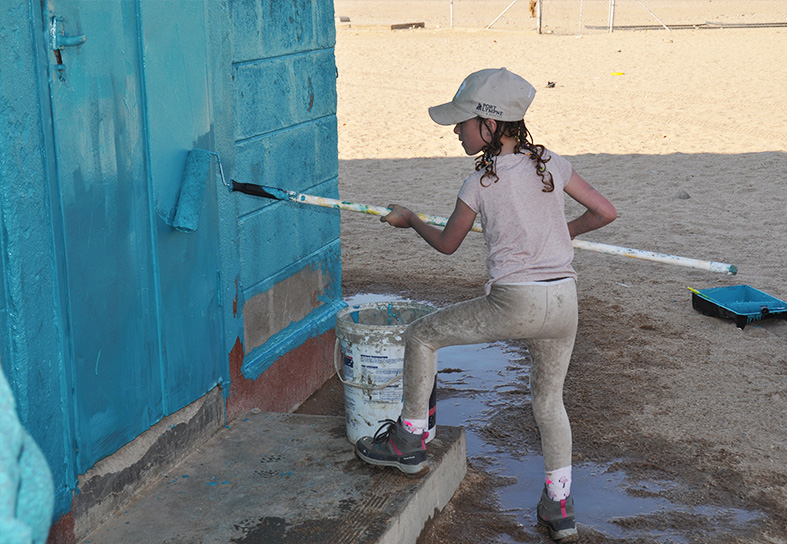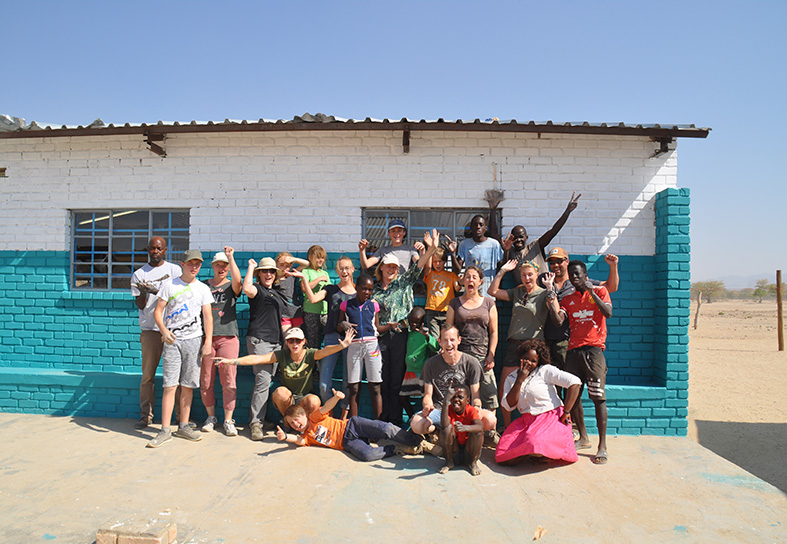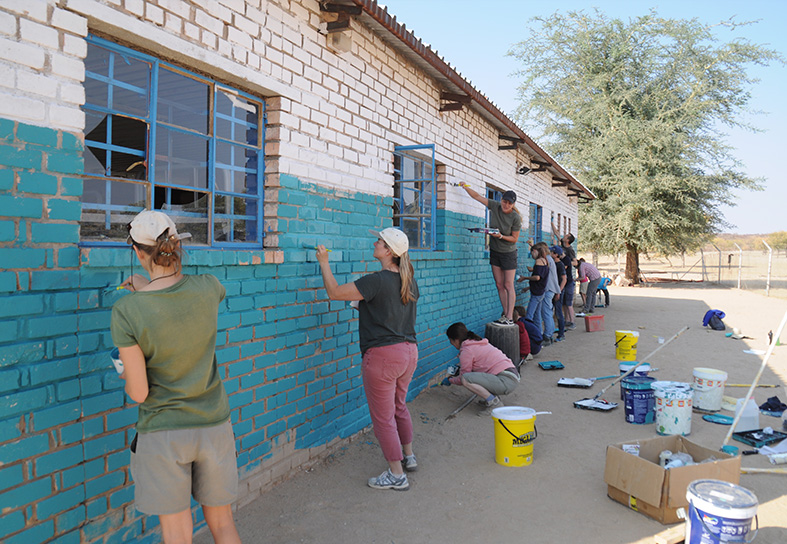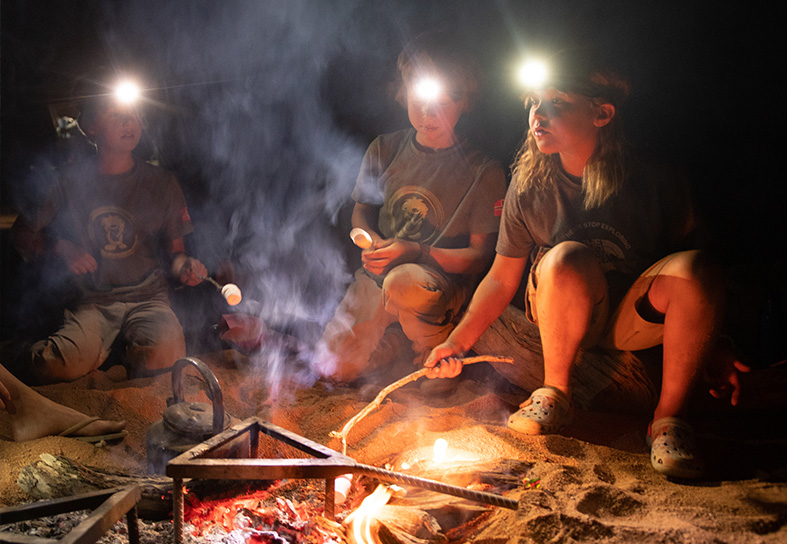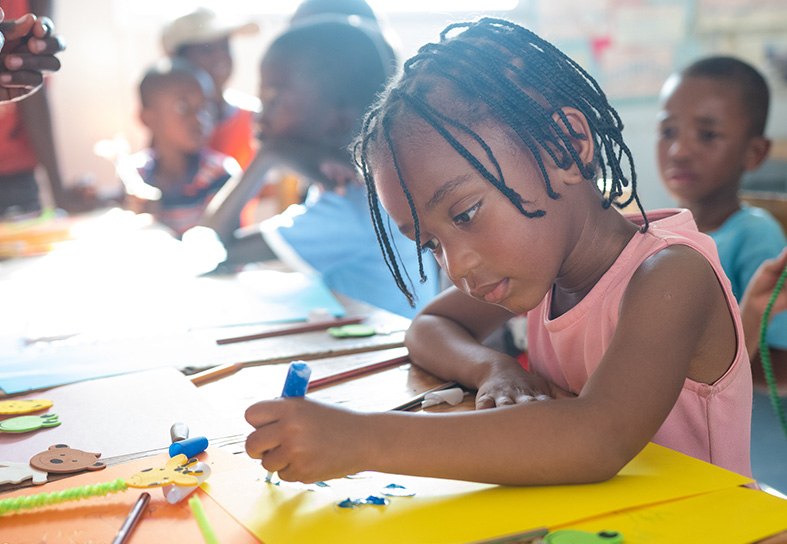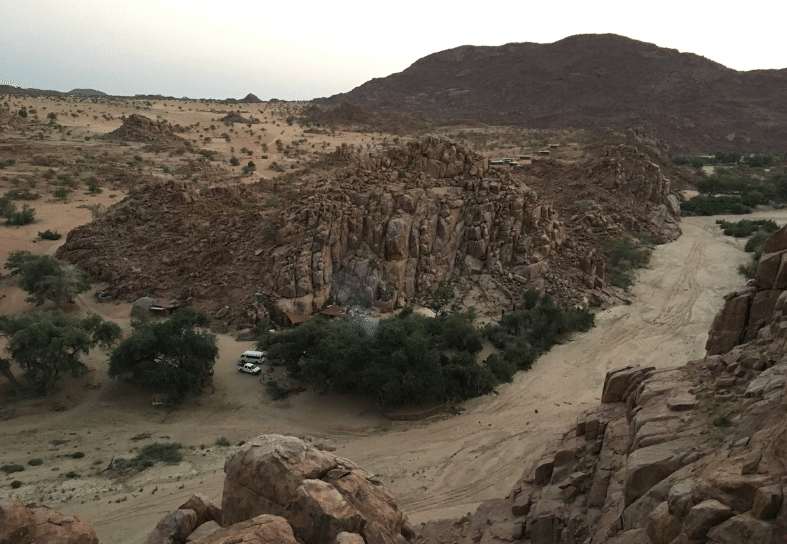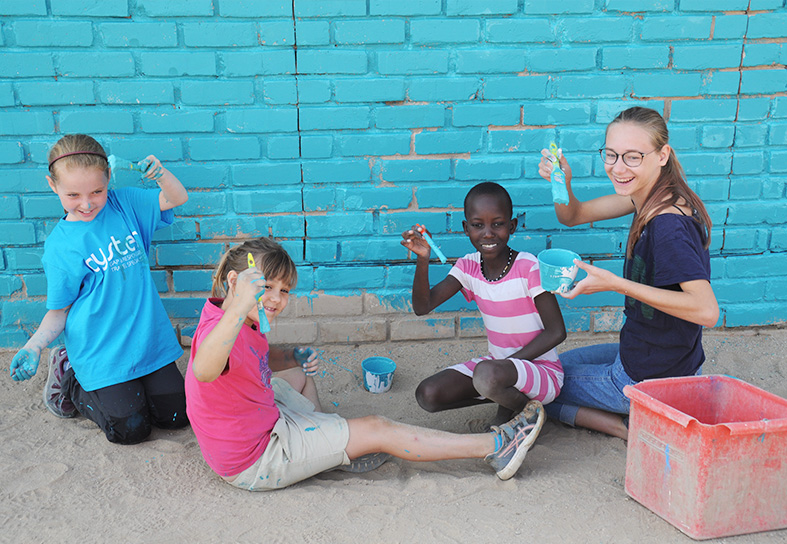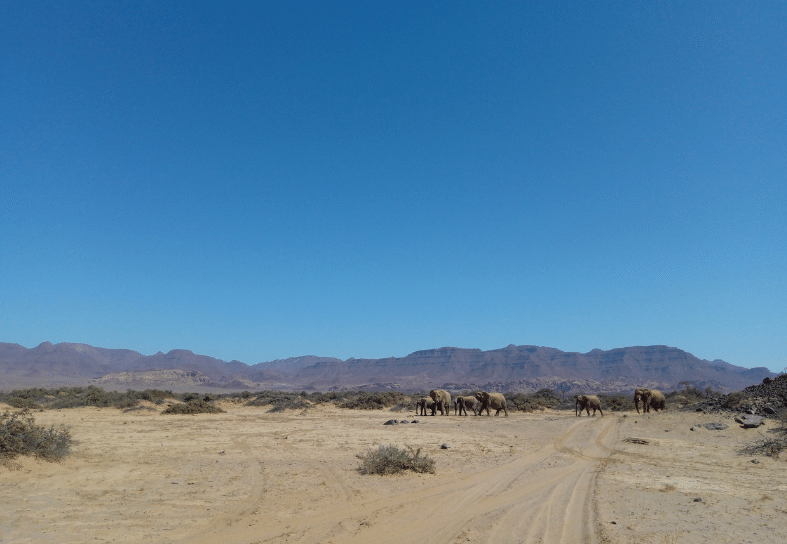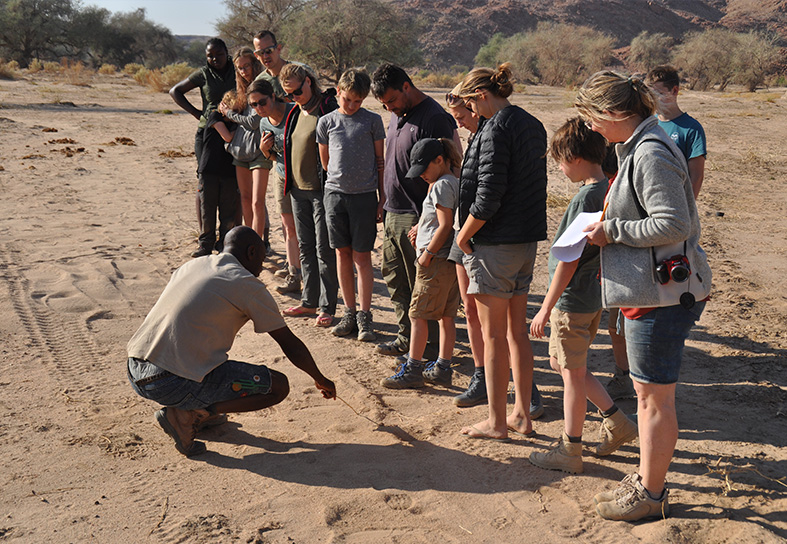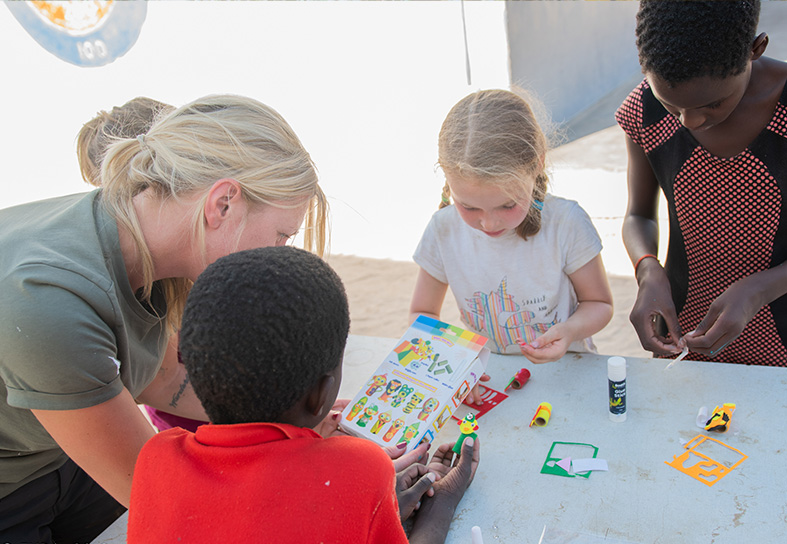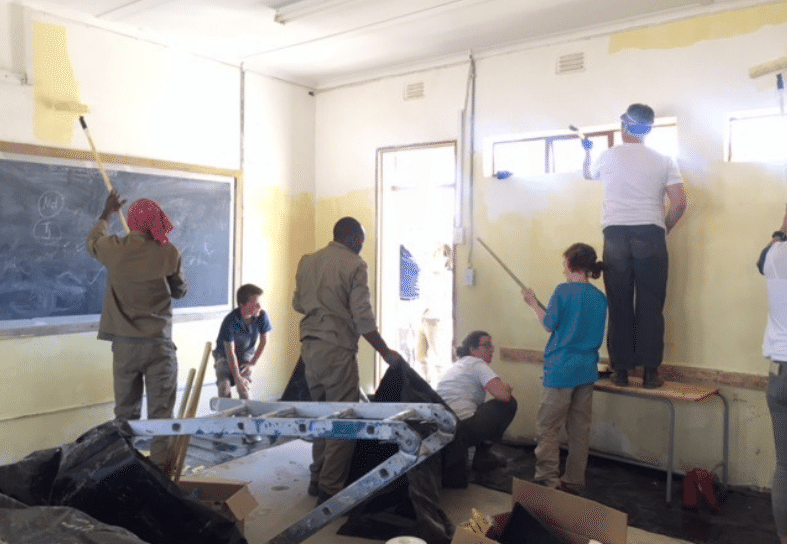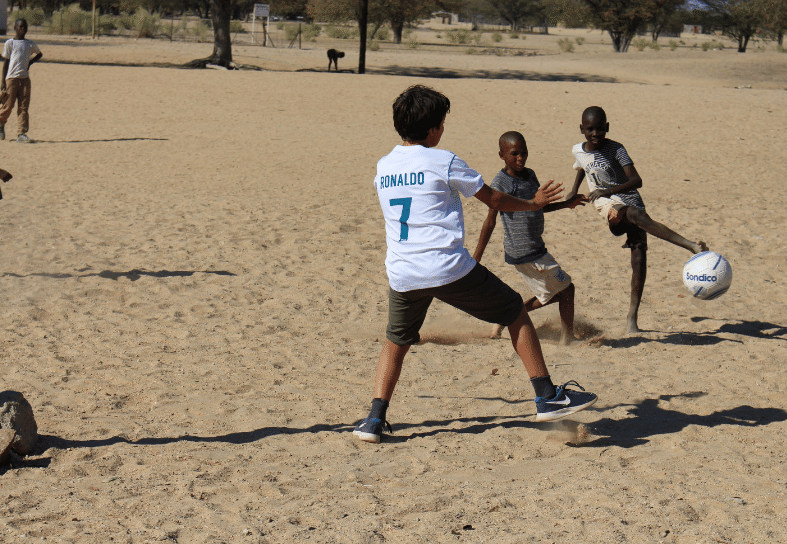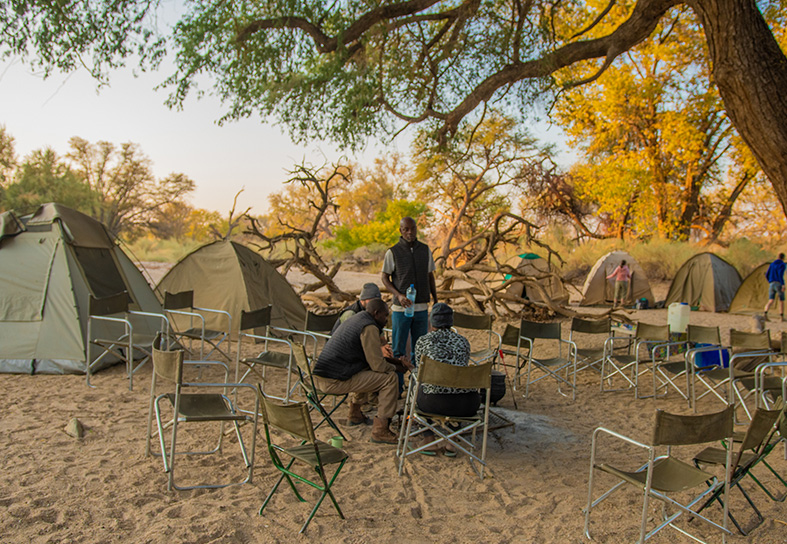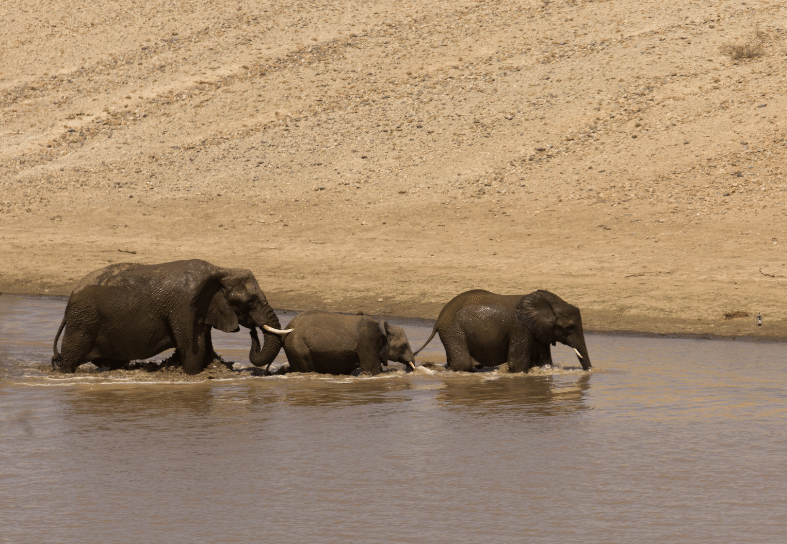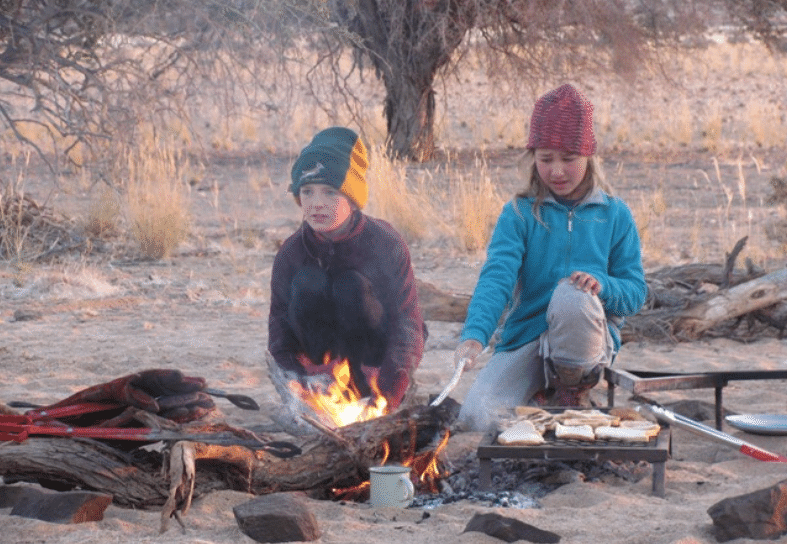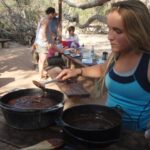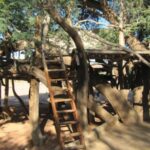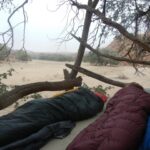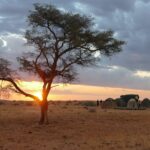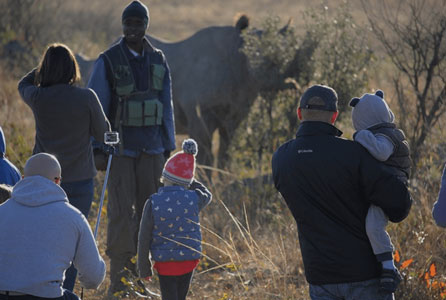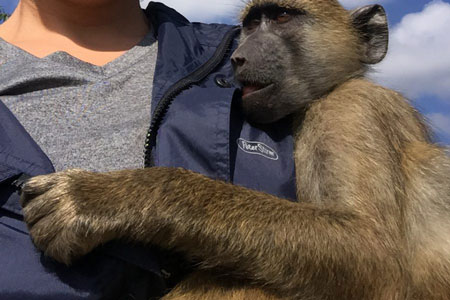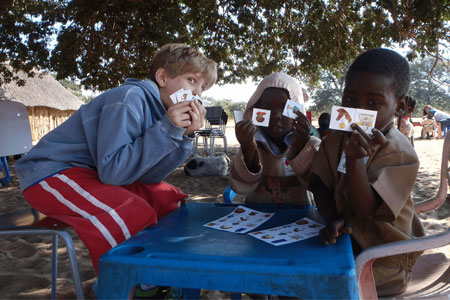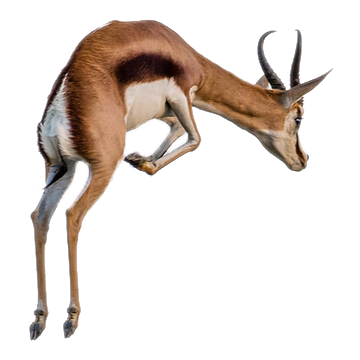Family Volunteering with Elephants:
Conservation & Community Service
NAMIBIA
Namibia
10 days
Scheduled Mondays
Up to 14 people
Age 8+
From £950
Namibia
10 days
Mondays
Mondays
Up to 14 people
Max 14
Age 8+
From £950
What's the project about?
The project’s goal is to preserve the desert elephant population in Namibia through anti-conflict measures. In their constant search for water, elephants can cause major damage to water systems, leaving communities without vital access to water. The project assist with building and repair projects in rural areas and monitors the movements of elephants to identify potential conflict situations. Family volunteering in Namibia is the perfect socially distanced vacation and is a safe and fun way to experience Namibia’s vast desert landscapes while contributing to an amazing conservation cause.
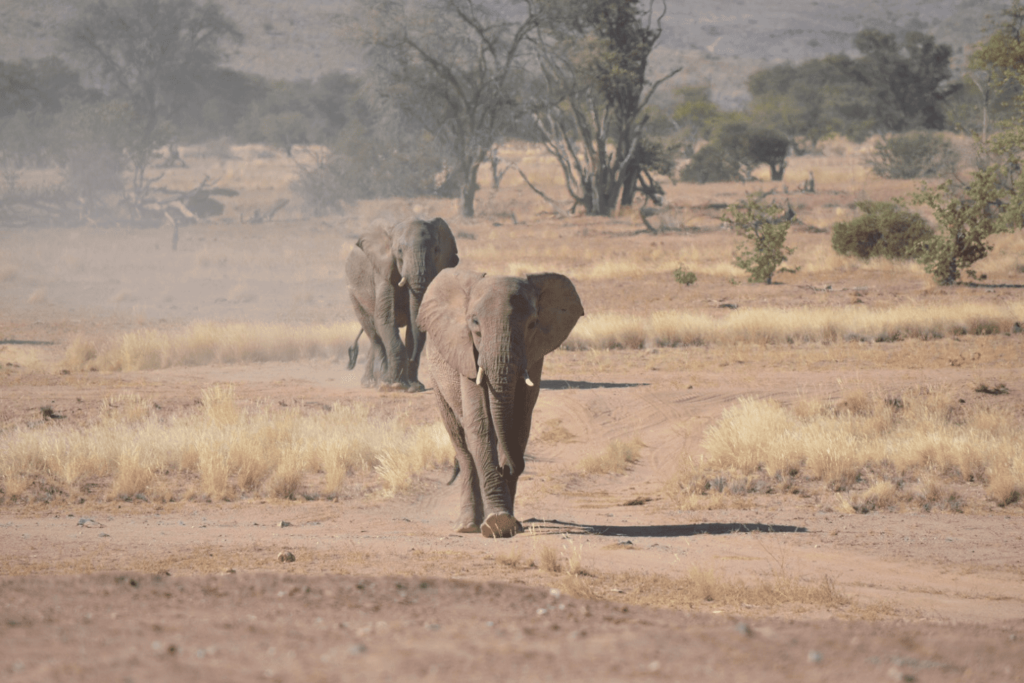
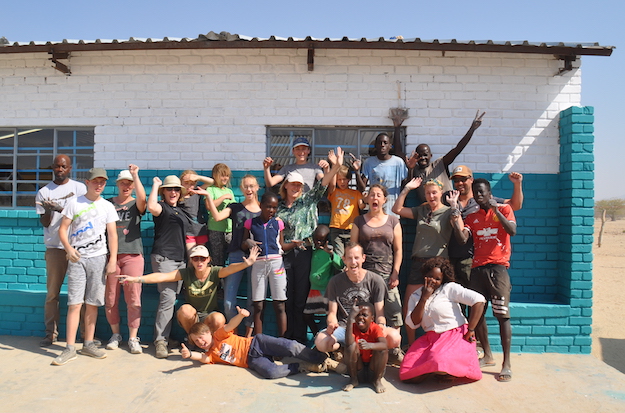
How will I be contributing?
This is a hands-on family volunteer programme. Families spend the first week working on building and school projects within remote rural communities. These are projects set by community leaders and you will see the positive impact of your labours straightaway. Additionally you will have the opportunity to engage with children and villagers, and find out about their daily lives. In your second week you head off into the desert to track and monitor herds of rare desert-adapted elephant. Volunteers will explore Namibia’s most spectacular landscapes and camp under clear starry skies.
What makes this project ethical?
Each volunteer on this project can see the positive difference their contribution makes. This is real grass roots work, taking a holistic approach to conservation, working with communities to ensure that humans and elephants can live peacefully and successfully together. The project enables young children to get involved with long term conservation activities, meet children from other cultures, and understand measures being taken to preserve African wildlife. Your guides are experienced teachers who love to engage with families and share their knowledge.
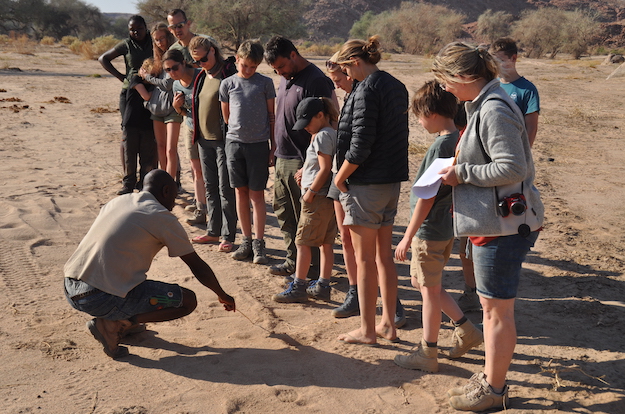
Project gallery
Project information
This family elephant conservation project is very hands-on, focused on conserving the desert-adapted elephant through long term anti-conflict measures and education programmes.
The desert-adapted elephant is found in only two countries in the world, Namibia and Mali, making this project an incredible opportunity to play a key role in preserving populations for the future.
Each family project is split into two parts: Community and Patrol.
Community week:
You will transfer to your first base camp from where you will be undertaking your first community project. This could involve working in rural schools, alongside teachers and students on building and maintenance projects such as painting classrooms or dormitories, or repairing elephant damage in the village.
Rural schools and villages have to live in close proximity to free-moving wild elephants, and the work that volunteers do is instrumental in attitude changes towards the elephants – showing the value that is placed on the animals. Volunteers highlight the importance of protecting and cherishing the rare desert elephants, and helping children and families see the benefits they can bring. You will also help with lessons on elephant safety and behaviour.
During your time in the community you will get the opportunity to meet local people, and understand how rural Namibians live – what they eat, how their houses are built, and the daily challenges they face.
Patrol week:
You will have a group briefing on patrol, where you will learn where you will be going, which elephants you are tasked to find, and instructions on how to behave around wild elephants.
Patrols have two main focuses:
- To have a human presence in areas where elephants are under threat, or move close to human habitations, and check that herds are together and there are no injuries or sick animals;
- To help compile identification files of new herds to the far north, where elephants cause problems for subsistence farmers. You will meet farmers and see for yourself what problems the elephants cause to livelihoods.
During patrol week you can expect to see other wildlife, including the rare desert-adapted black rhino, springbok, oryx, kudu, giraffe, zebra and lots of ostrich! The whole area is home to amazing birdlife, including hornbills, love birds, Egyptian geese, eagles and other raptors.
Bush skills:
During your volunteer programme there is lots of time set aside for your expert guide to teach you desert survival skills, about edible plants in the desert, and the fascinating desert eco-system. During patrol week you will do some foot-based tracking, to get everyone out of the vehicle and the blood flowing! Your new tracking skills will be put to the test! If you are camping near the wetlands, you will also have a (highly competitive) fishing competition.
How is the programme structured?
Sunday (day before your project starts)
On the Sunday evening volunteers will have a project briefing in Swakopmund where you can meet your new travelling companions! You should arrive into Swakopmund on Sunday afternoon at the latest in order to attend the briefing. Volunteers usually overnight together at a B&B in Swakopmund.
Day 1: Monday
Depart for base camp, a 4 hour drive north of Swakupmond, on the banks of the Ugab River. Settle into this stunning wilderness camp, before a full safety and project briefing about the work that you will be doing.
Each day a family will be on kitchen duty together, which involves waking up to make morning tea and coffee, preparing breakfast and lunch, and the big evening meal. Every night a big healthy meal is prepared over the fire, ranging from roast chicken, spaghetti bolognaise, lamb tagine and Thai curries. Vegetarians can be catered for. Everyone helps with the washing up!
Days 2 – 4
Early the next morning you will head to the school to meet the teachers and pupils and start your project work. There will be opportunities to observe lessons and participate in sports and crafts. Days are split into two with a break for a long lunch during the heat of the day, with days ending around 4.30pm.
Day 5
This is a day to relax and explore the area around base camp, go on a nature walk and learn new bush skills. In the evening you will have a briefing on elephant patrol, which will explain the goals of the next few days.
Days 6 – 9
Pack the patrol vehicles and head out early. During patrol week you will sleep under the stars, which is a highlight of the whole trip. After lunch on your final patrol day, you will head back to base camp for a final shower amongst the rocks, and the last night in the tree house!
Day 10
After a leisurely breakfast, pack up the vehicles and head back to Swakopmund. You should arrive back around lunchtime, leaving plenty of time for you to enjoy activities including desert and dune tours, sea fishing, kayaking and sampling some local delicacies at one of the excellent restaurants in town.
We suggest that volunteers arrange to stay with the group on Sunday night in Swakopmund. We will advise you which lodge the team are staying at upon booking – there will always be a choice of rooms to suit most budgets. We will arrange your booking for you, but you will pay your bill on arrival.
During Community Week, volunteers are accommodated at a permanent base camp, where you can sleep on platforms within a huge Ana Tree, which is a wonderful experience. The camp is fully equipped with flush toilets, showers, hot water and communal kitchen and living area. Bedding is provided, but please bring a sleeping bag and pillow. There are two elephant drinking dams in the camp and the elephants often wander through, which is a truly magical experience.
During Patrol Week, mobile camps are basic, as you will be camping wild depending on the elephants location. Camps will always be in the most stunning spot, where you can enjoy the night skies, snug in your sleeping bag. Bring wet wipes and hand sanitiser as there are limited washing facilities at the mobile camps.
All cooking is done over a fire, and volunteers will work in family groups on kitchen duty – from the first cup of coffee of the day, breakfast, lunch and dinner. No need to worry about what to serve, as you will be provided with very easy recipes.
When can I volunteer?
The project runs two family volunteer projects a year and spaces do fill up quickly. We recommend getting in touch as soon as possible.
2024 project dates:
22nd – 31st July 2024
5th – 14th August 2024
2025 project dates:
28th July – 6th August 2025
11th – 20th August 2025
2024 / 2025 pricing:
9 nights – £950 per person / £980 per person
Prices are in GBP.
What’s included in the cost?
- Project contribution: this goes directly to our project partner and provides funding to ensure the programme can continue to meet its goals. For this project it will cover things like staff costs, equipment purchases, maintenance of buildings, equipment and vehicles, purchase of materials for building projects etc
- Accommodation and three meals per day
- Return transfers from Walvis Bay Airport
- Comprehensive orientation and supervision
- Practical instruction on building techniques and wildlife identification
- Equipment and materials required to do your work
What’s not included?
- Flights or travel to Namibia
- Transfers from Windhoek Airport to Swakupmond (these can be arranged if required)
- Visa fees
- Travel insurance (compulsory)
- Personal expenses such as souvenirs, drinks, snacks, activities in Swakupmond
- Pre and / or post programme accommodation
- Additional excursions
- Local SIM card and data / airtime bundles (optional)
- Administration fee (£40)
View our booking terms and conditions.
Further travel in Namibia
Namibia is a very safe and accessible country to explore: car hire is very affordable and the road network throughout the country is excellent. Most car hire firms have the option to add a roof-top tent and a fridge to your vehicle, giving you the opportunity to travel around the country, taking advantage of amazing and affordable campsites, most of which have hot and cold running water and excellent facilities. If you would prefer to take advantage of the some of the most beautiful lodges in Southern Africa, we are happy to make some recommendations! Please enquire if you would like some ideas for extensions to your volunteer experience.
The project was established to ensure that elephants and humans could successfully live side by side. The goals of the programme are three-fold
- To support local communities in infrastructure repairs and building projects
This includes constructing new walls around water points, allowing elephants access to water without breaking pipes or damaging pumps; constructing walls around crops and homesteads, upgrading classrooms and building new facilities as required.
- To monitor and report on the Damaraland elephant population
In order to understand the movements and territories of these elephants, plan which farms and smallholdings may be at risk and identify potential conflict situations, volunteers spend one full week every fortnight out in the bush on elephant patrol, to track herds, identify and locate individual elephants and build up a picture for accurate elephant management. These reports also assist in identifying farms and homesteads which are potentially at risk from future elephant conflict.
- To provide ongoing education to communities
In order for future generations to live side-by-side with the growing elephant population, the project implemented an elephant education programme in schools and communities, giving people the knowledge to live safely alongside elephants, to reduce their fear and create a pride in their wildlife heritage.
Family volunteers are instrumental to the project achieving their goals.
The project was founded in 2003 and is run by a Namibian-registered not-for-profit organisation. The aim of the organisation is to conserve the desert elephant population in Southern Damaraland, Namibia, through anti-conflict measures. During the 1970’s, poaching in the region soared and the elephant population was almost totally wiped out. Through ongoing conservation efforts, a small population of elephants returned to the area in the mid 1990’s which, although fantastic for conservation, created many problems for the subsistence communities and farmers in the region.
In their almost constant search for water, elephants can cause damage to many community water points, leaving the local Damara and Herero people without access to fresh water for drinking and agriculture. During the 20 year absence of elephants, local knowledge on their behaviour had been lost, and communities were fearful of and unfamiliar with living in such close proximity with their large neighbours. It was motioned that all the elephants in the region should be removed, which is where the project stepped in.
Over the last 10 years and with the help of over 1,000 volunteers, 150 protection walls have been constructed in Damaraland, and new drinking points built to divert elephants away from community areas. In addition, the project has implemented an elephant training programme in rural schools and communities, to give people the knowledge to enable them to live peacefully alongside the local elephants.
Elephant numbers have continued to increase, and today there are over 600 elephants regularly moving around the area.
For the latest travel updates, please visit our Namibia destination page.
Who should volunteer on this project?
No wildlife experience is necessary for family volunteering in Namibia, but a passion for the outdoors, an adventurous spirit and a willingness to work hard and part of team, are definitely required. You should be able to communicate reasonably well in spoken English.
How fit do I need to be?
A moderate level of fitness and all-round good mobility will make your time more comfortable.
Is it safe?
Family volunteering in Namibia is a safe and secure way to explore on of Africa’s most fascinating and diverse countries. You will explore the rocky desert regions as you track elephants and camp under the stars, and live in local communities to assist with community-led building, repair or maintenance projects. Namibia’s low population and vast open spaces make it the perfect socially distanced family vacation! Namibia has excellent infrastructure, with a good road network and excellent, if widely-spaced hospitals. Your guides are experienced in family volunteering and you will be in good hands.
How old do I need to be?
The minimum age for family volunteers is 8 years. There is no upper age limit, but for volunteers aged over 65, we do require your medical form to be signed by a doctor.
How many people will there be?
There is a maximum of 14 volunteers at one time, plus staff and volunteer co-ordinator.
When can I join?
The meeting point is in Swakopmund on Sunday evening at 1830. We will advise of the meeting point location once you have made your booking.
What will the weather be like
During winter (April – August) daytime temperatures average 25-27°c with no rainfall at all. Temperatures during the night and in the mornings and evenings regularly go below freezing, so lots of layers are needed!
How much spending money should I bring?
We recommend bringing around ZAR1,000 (around US$100) to cover personal expenses such as drinks, souvenirs, snacks and tips.
Do I need a visa?
Most nationalities including British, Australian, Canadian, American and most EU citizens can get a tourist visa upon arrival into Namibia, valid for stays of up to 90 days. However, it is your responsibility to check your visa eligibility prior to arrival. All nationals must carry proof of onward travel and proof of accommodation. It is important you state you are a tourist on your immigration form.
What animals will I encounter?
Aside from elephants, you can expect to encounter giraffe, oryx (gemsbok), ostrich, kudu, zebra, springbok and, if you are lucky, the elusive desert-adapted rhino – a rare and privileged siting. Namibia is home to Etosha National Park, one of the finest parks in Southern Africa, home to huge numbers of iconic wildlife. We highly recommend you make some time either before or after your project to visit the park. Visit our Etosha tours page for more details.
What vaccinations do I need?
Please consult your GP or travel clinic for detailed medical advice.
Malaria – the project is regarded as malaria-free, but please consult your GP for guidance. All volunteers should make sure their Tetanus, Polio and Hepatitis A and B are up to date.
Please visit this UK government website for more details.
Volunteer reviews
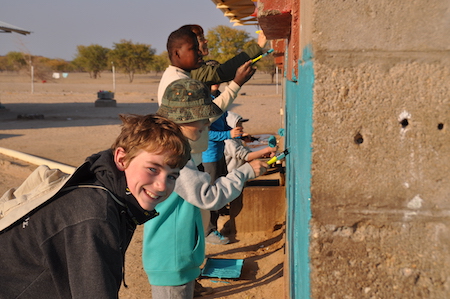
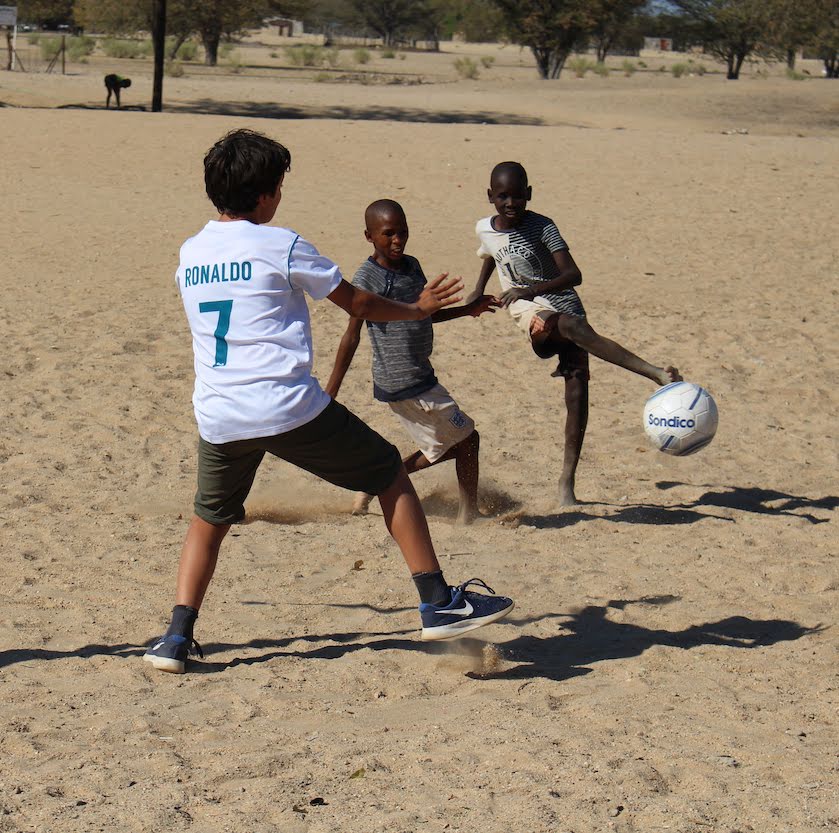

Other projects you might be interested in
Live in the heart of a family-run conservancy in Zimbabwe. Interact with rhinos and elephants, visit rural communities and learn from experienced guides.
From $900
1 - 8 weeks
Bring your family on the adventure of a lifetime, as you assist in the rehabilitation and release of wildlife at Zimbabwe’s only dedicated primate rehabilitation centre.
From $840
1 - 12 weeks
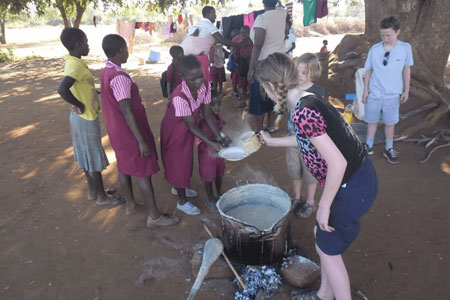
Family Volunteering - Teaching & Big 5 Conservation
Combine community and conservation in Zimbabwe’s finest Big 5 wilderness areas. Participate in literacy classes, and experience the thrill of tracking big game.
POA
1 - 4 weeks
Learn about other cultures, engage with schoolchildren, teachers and farmers in rural communities. Get a fresh perspective and appreciate different ways of life.

